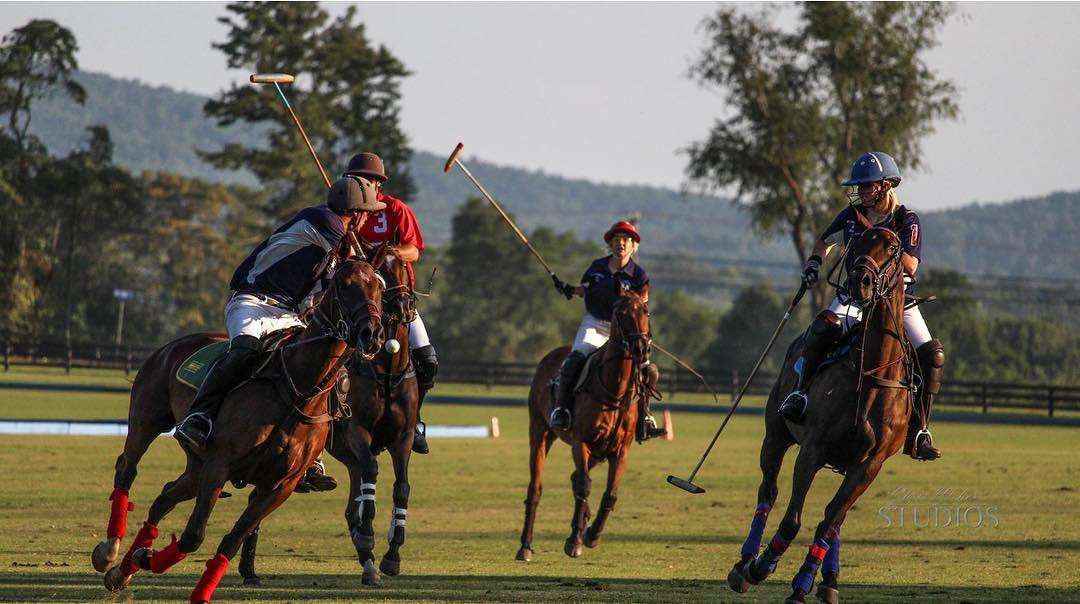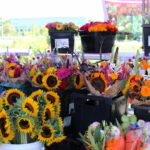Polo is known as “The Sport of Kings” and Loudoun County is “horse country,” so it’s no wonder the two are a match made in equestrian heaven! This photogenic, fast-paced game makes the perfect night out for couples and families alike, mixing the glamor of equestrian events with the fan access of minor league sports.
The game is fairly straightforward, with two teams of four riders squaring off over six periods. The object of the game is to use a wooden mallet on a plastic ball and knock it into a goal. The typical field is 300 yards by 160 yards and is surrounded by short, wooden walls. The object of one team is to outscore the other quartet.
Whether you are a seasoned spectator or this is your first match, you might be confused by some of the terminology, which combines English, Indian, and Middle Eastern terminology.
Here are a few key terms and phrases that will have you talking like an expert at your next chukka:
- Chukka/Chukker: Derived from Hindi (cakkar) and Sanskrit (cakra) words meaning “wheel” or “circle,” a chukka is one of six periods in a polo match. The chukka runs 7.5 minutes with a five-minute intermission between each.
- Ponies: This seems obvious, but horses are called ponies in the game of polo. Known for their speed, stamina, and good attitude, Argentinean Criollo horses are a popular breed for this intense sport. The ponies are switched out during each intermission so a standard match has at least 48 ponies.
- Mallet/Stick: Shaped like a sledgehammer made of wood on a long bamboo stick, this is the equipment that the rider uses to strike the ball. However, unlike in croquet, it is the side of the mallet (not the head) that is used to make contact.
- Numbers: Each team is numbered 1-4, with the number determined by a player’s position. On most teams, No. 1 is the goal striker, No. 2 is an additional forward that plays some defense, No. 3 is the star player that makes plays at both ends of the field, and No. 4 (also called a back) is the most defensive-centric player.
- Line of the Ball: The path that the ball travels plays an important role in the rules of the game, particularly from a safety perspective. While bumping is allowed, major collisions are avoided by giving right of way to a player closest to the line of the ball. Players will yell “your line” to teammates in order to signify their right of way.
Loudoun’s polo history dates back to 1918 when the county’s first polo field opened in Middleburg. Today, weekly polo matches are open to the public during the summer at Morven Park in Leesburg so come out to the #BestPartyInLoudoun for Polo on the Park! Matches are held June 3-24 and July 8-22. Admission is $40 per vehicle with up to SIX OCCUPANTS. Gates open at 6pm and all guests must enter via Tutt Lane (off Route 15). The Old Waterford Road entrance will be closed.
No matter when you choose to watch, supporting Loudoun’s polo grounds is a great way to support Loudoun horse owners and farms. Get your passes today!






